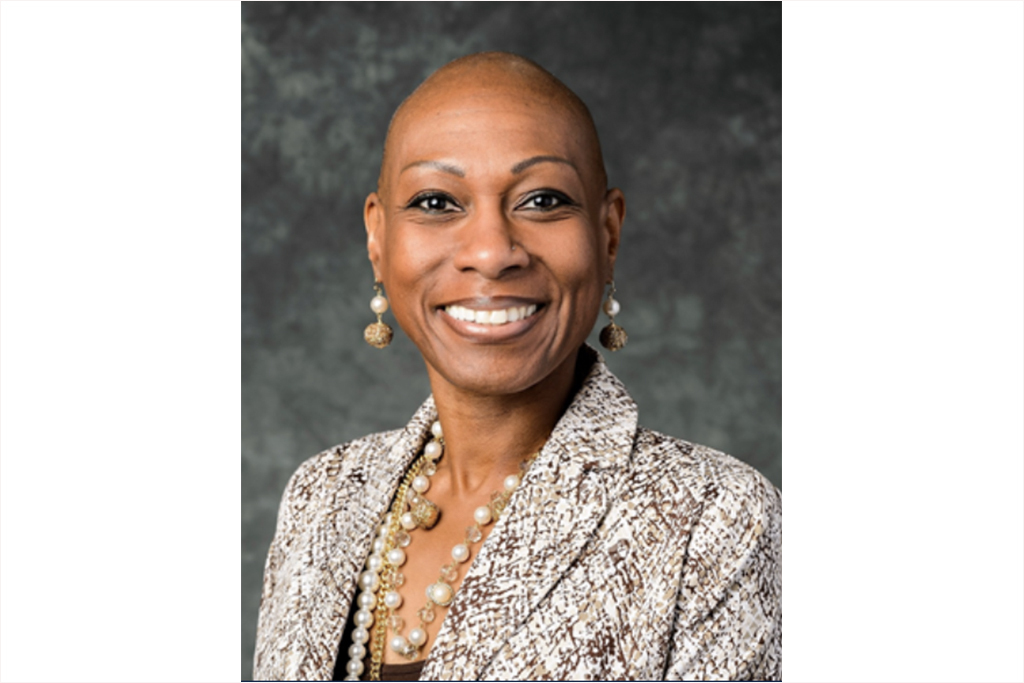Antionette 'Bonnie' Candia-Bailey’: May HBCU VP's Light Shine On
May Dr. Antionette ‘Bonnie’ Candia-Bailey’s Light Shine On

Dr. Antionette Bonnie Candia-Bailey. | Source: Lincoln University of Missouri
If you or someone you know is struggling with suicidal ideations and need someone to talk to, please click here for support.
I was saddened to learn of the passing of Dr. Antionette “Bonnie” Candia-Bailey, the former VP of Student Affairs for Lincoln University of Missouri. I extend my deepest condolences to her family, friends and community. She allegedly experienced bullying and harassment at work, and in the end, it was too much to bear. Prior to her passing, Candia-Bailey penned a heartfelt letter detailing what she had been experiencing at work. It was difficult to hear about and process the letter.
One of the most tragic things about Candia-Bailey’s passing is that she was suffering and few came to her aid. I will never understand how people can see someone in pain and look the other way.
MORE: Board ‘Ignored’ Bullying Complaints From HBCU VP Who Later Died By Suicide, Emails Show
Given that we spend a good portion of our lives at work, it is difficult to put into words the impact of a toxic or stressful work environment. Like Candia-Bailey, many Black women have voiced frustration about their treatment at work. A 2020 study “by the Gallup Center on Black Voices, found that Black women are less likely to feel they are treated with respect in the workplace. They are also less likely to feel like a valued member of their team and that their coworkers treat everyone fairly.” This takes a physical and psychological toll that is hard to quantify. While some women struggle through, others walk away.
Around the time of the 2020 Gallup study, there was a wave of stories highlighting the growth in businesses led by Black women. It is true that for years, Black women represented the fastest-growing demographic of entrepreneurs in the U.S. Yet for many Black women, launching a business was born out of necessity as opposed to an innate entrepreneurial drive. Many felt they wouldn’t receive the coaching, mentorship, connections and growth opportunities that would have made upward mobility possible. They felt they couldn’t have a seat at the table so they created their own table and brought their own chair.
This doesn’t mean their path was obstacle-free. While “Black women account for nearly 2.7 million businesses nationwide, they experience severe challenges due to the lack of support and access to capital. It is estimated that 61% of Black women self-fund their startups.” So, while leaving a workplace may offer some relief, there must be deeper societal work to ensure that Black women and all women have what they need to thrive.
Creating the conditions for Black women to thrive is personal for me and so many others. My last book, First and Only: What Black Women Say About Thriving at Work and in Life, was a byproduct of my own workplace challenges. I wrote the book while trying to make sense of a period where I felt all was going wrong. It wasn’t until I shared the manuscript with an editor and friend, that I learned that my story was in fact her story. Many Black women know what it’s like to go from pet to threat. Many know what it’s like to be saddled with accusations of “having an attitude,” “being too aggressive,” “being too loud,” or “being too assertive.” In a 2022 interview with CNN’s Niquel Terry Ellis, I shared that when I see Black women in high-profile positions, I always wonder if it is as good as it seems. Often, it isn’t.
Celebrate and don’t walk away
As a member of a marginalized group, I know it’s easy for Black women and allies to get excited when a Black woman breaks a barrier. But breaking a barrier is not the end of the story. Black women who shatter glass ceilings still need to navigate the new terrain. Additionally, the more visible a Black woman is, the more scrutiny she will face. The more confident she is, the more some will demand her acquiescence. The more she utilizes her voice, the more some will try to extinguish it. Until racism, sexism, homophobia and misogynoir are uprooted, advancement for Black women – at all levels – will be fraught. While we celebrate milestone accomplishments, we must commit to staying engaged.
It is unfortunate that Dr. Candia-Bailey is no longer with us. She deserved so much more. I pray her light and legacy live on, and that her family and friends find peace and comfort. I also pray for accountability and some measure of justice. This is an opportunity for collective soul-searching to ensure that all people are safe and supported at work and at home.
Jennifer R. Farmer is the author of “First and Only: What Black Women Say About Thriving at Work and in Life.”
NewsOne has compiled a list of suicide prevention resources.
If you or someone you know is struggling with suicidal ideations and need someone to talk to, please click here for support.
SEE ALSO:
1 Year After tWitch’s Suicide, Rates For Black People Remain Among The Highest
Hopelessness Is A Key Reason Some Black Young Adults Consider Suicide, Study Finds
















